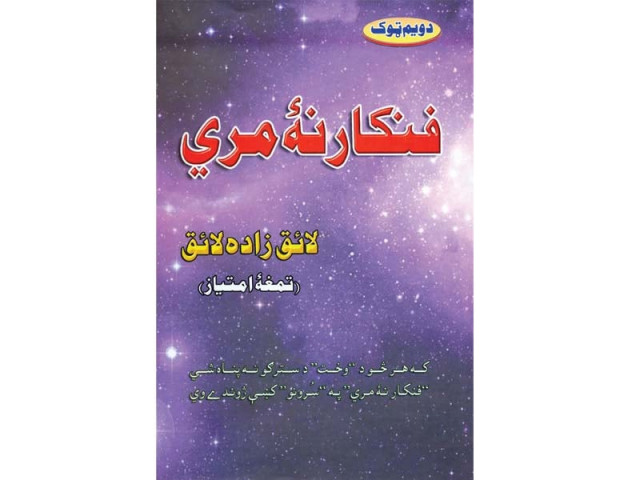Music to my ears: Book on Pashto music producers hits the stands
Author says veneration composers deserve is lost in entertainment process

Author says veneration composers deserve is lost in entertainment process. PHOTO: EXPRESS
In order to give recognition to producers without which singers who reached the pinnacle of their careers and gave melodious tunes to the world would not have been possible, writer and poet Layyeq Zada Layyeq published Fankar Na Mri part-2 (Artist Never Dies) on Wednesday.
The book—follows from its first part that had cast light on famous Pashto singers of the past—elucidates the contributions and work of 33 families of musicians. “The vocalist just brings his or her voice – after the poet, the music composer deserves credit, however, 90% of Pukhtuns have no information about them,” Layyeq told The Express Tribune.
Rejuvenating
“Searching for melodious musicians and singers of the past has been my ambition,” Layyeq told The Express Tribune. He added after writing about singers, he tried to find people who could speak through beats and understood the sur and taal.
He said these people evoke emotions in a song where lyrics incite listeners to search for their pain and find solace.

According to Layyeq some musicians were not even Pukhtuns but had served Pashto music, adding new colours to the art. “They accepted this land as their own and the book brings to life their contributions and sacrifices,” Layyeq said.
Endowed
The author said most producers come from a family of composers and their work and talent passes on from generations with varying degrees of success. The famous singer Hashmat Sahar followed the work of his father Ustad Qadam Khan, a musician from Khyber Agency. “The family has rendered great service to Pashto music and their work has been kept alive,” Layyeq said. He also gave the example of senior music producer Ustad Nazir Gul who continued the legacy of his father, Ustad Khaista Gul.
“The children of musicians are ambitious and wish to take on the responsibility of keeping their family and ancestral tradition alive,” the author said. He examined the work of Shakir Zeb Nowshervi, the grandson of Ustad Aqal Meer, a legendry harmonium player from Nowshera. “Shakir’s father Jahanzeb Nowshervi was also an expert at harmonium and today Shakir and his brother Farrukh Zeb are famous Pashto music producers in the province with their own recording studios.”
The downfall
The author said, “However, due to the stigma attached to music in the region, children of several famous musicians have ceased to follow their parents’ footsteps.” Layyeq wrote about Zarnosh Ustad who started music with Drooza but had no one to carry his legacy forward.
He said moreover, most of the maestros were folk artists, and unlike in the past, the style of music has greatly changed today. “These musicians would take several days to bring a composition for the public but now music has become mechanised—rhythms are put into a computer—which has dealt a deathblow to many instruments.
Layyeq also said the great musicians of the past spread the magic of their work beyond Khyber-Pakhtunkhwa and into Delhi and Kolkata. “However, unfortunately, unlike in the Punjab, the gharana system could not flourish in K-P and families failed to get their due recognition,” he said.
Published in The Express Tribune, August 18th, 2016.













COMMENTS
Comments are moderated and generally will be posted if they are on-topic and not abusive.
For more information, please see our Comments FAQ